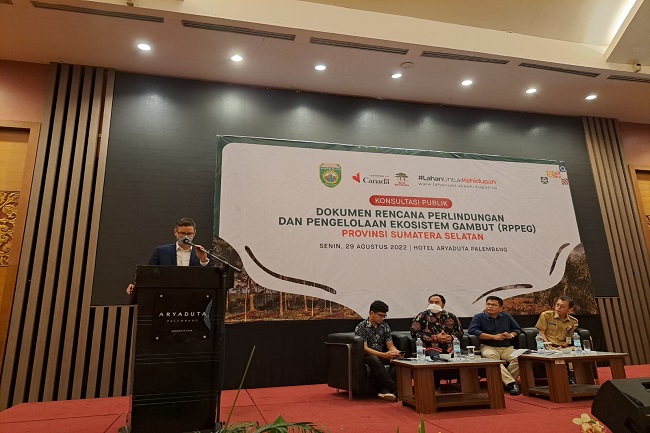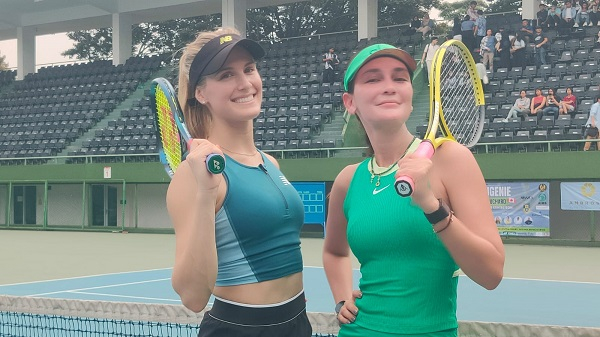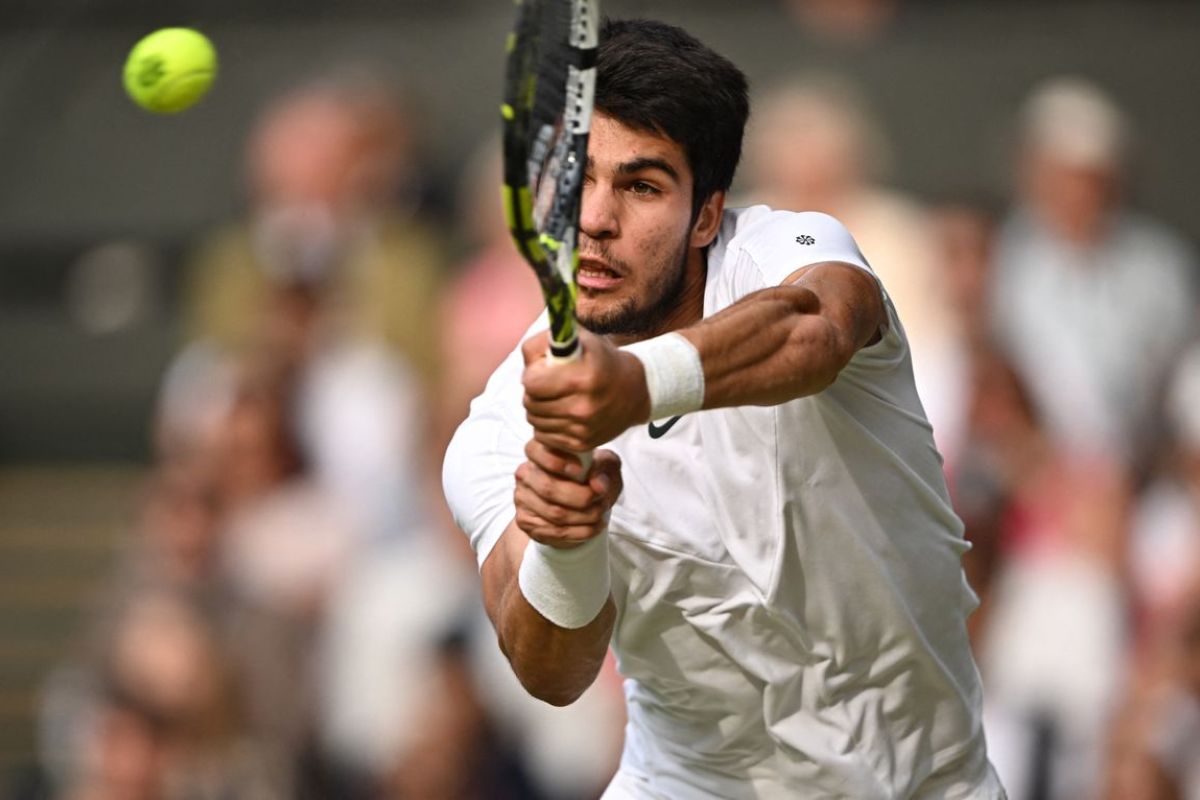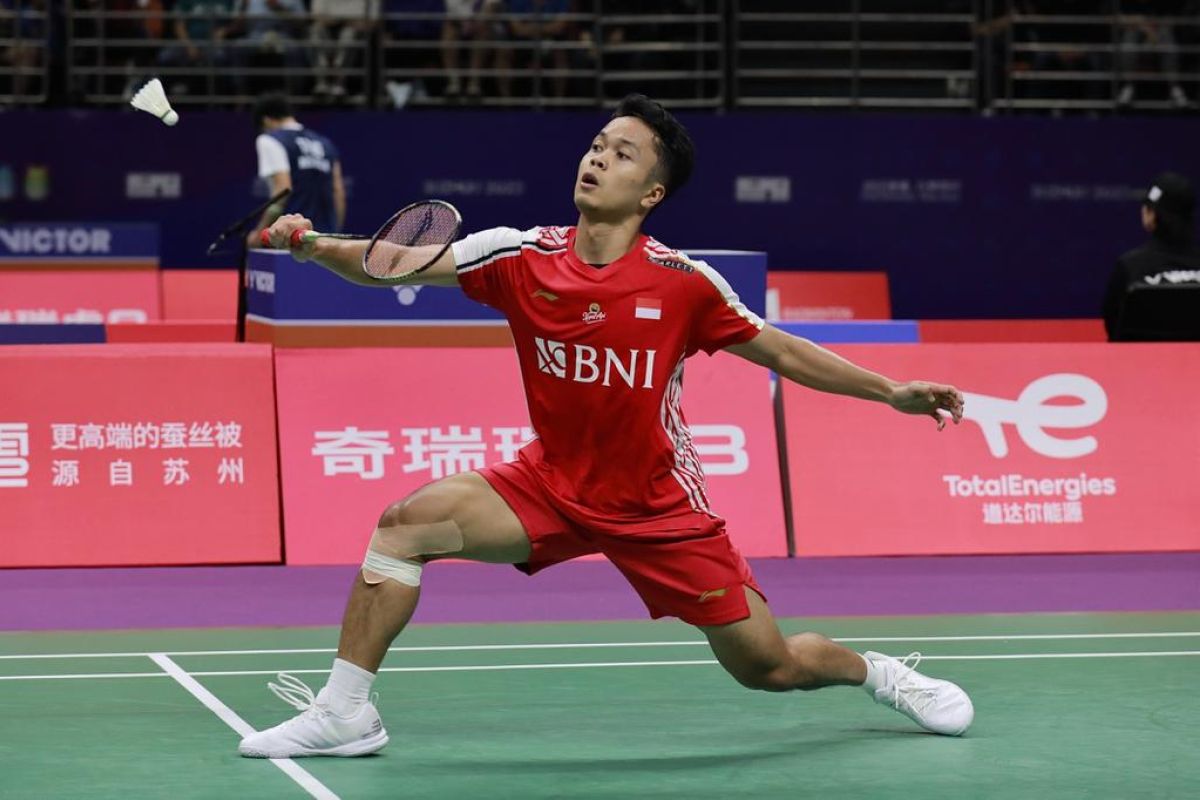Palembang, Gatra.com – The Department of Environment and Land Affairs (DLHP) of South Sumatra Province (Sumsel) continues the process of finalizing the Peat Ecosystem Protection and Management Plan (RPPEG) document in order to get input and suggestions from parties.
The public consultation activity on the South Sumatra RPPEG document involved various stakeholders in this field, especially those related to the management of natural resources and peat ecosystems, which took place at the ballroom of the Aryaduta Palembang Hotel, Monday (29/8). The Head of Cooperation of the Canadian Embassy in Indonesia, Kevin Tokar, was present at this activity.
In addition, the forum also jointly agreed on strategies, policy directions, programs, activities and objectives in the RPPEG of South Sumatra Province as an initial process in the commitment to implement sustainable peat management.
The Head of Damage Control and Environmental Maintenance Division of DLHP South Sumatra, Drs. Wilman SH MH said that the South Sumatra RPPEG document has been prepared lately and covers all the discussions, including the political strategies of the programs and today a public consultation was organized to receive contributions and suggestions from the stakeholders, related to the content or the content of the RPPEG document of the province of South Sumatra.
“Referring to Regulation No. 60 of 2019 of the Minister of Environment and Forests concerning the procedures for the development, establishment and modification of a plan for the protection and management of the peat ecosystem (RPPEG ), one of the principles of the development of the RPPEG document is that it is participatory involving the parties,” he said.
South Sumatra peat restoration expert team Syafrul Yunardi said that up to 40% of the total area of 1.2 million hectares of peatlands in this area have been recorded as being in a declining or degraded state. He explained that the peat bogs of South Sumatra are in the form of peat swamp forests.
“Above forest, peat below, but in fact the forest has been cut down and cleared for plantations and agricultural activities,” he said.
The clearing of the peat forest, Syafrul said, was in line with high population growth which has led to a limitation of productive land. “In fact, the bog was not considered before, because this land is marginal, that is to say less fertile, but because of the demand [lahan] up, enter the plantation,” he said.
Production activities on peatlands also have the potential to cause forest and land fires (karhutla) due to canals constructed by concession companies. “In fact, the peat swamp forest is flooded almost all year round. If the peat swamp forest is good, it will never burn. That’s why you have to block the channel so that the peat doesn’t dry out,” did he declare.
Syafrul said various parties have made efforts to protect and manage peat ecosystems. In fact, he said, South Sumatra has also received support from many countries to create sustainable peatlands. “One of them is Canada through the Land4Lives project whose location is in a district with quite extensive peatlands in South Sumatra,” he said.
The preparation of the South Sumatra RPPEG document was supported by the Land4Lives project, which is a collaboration between the Government of Indonesia through the Ministry of National Development Planning/Bappenas and the Government of Canada through the intermediary of Global Affairs Canada (GAC).
The head of cooperation at the Canadian embassy in Indonesia, Kevin Tokar, said his party has pledged IDR 190 billion for better land management in three provinces in the country, including South Sumatra.
“South Sumatra is the second largest area of peat ecosystems in Indonesia, so we consider it necessary to support better peat management,” he said. Canada also supports the preparation of RPPEG documents for sustainable peat management.
In South Sumatra, the implementation of the Canadian program is in partnership with World Agroforestry (ICRAF) Indonesia. According to Kevin, Indonesia cannot meet its commitment to reduce the impact of climate change if it fails to manage peat sustainably.
“However, our goal is not only to fight climate change, but also to help farmers implement better agricultural governance,” he said.
Journalist: Bubun K
140

“Unapologetic travel lover. Friendly web nerd. Typical creator. Lifelong bacon fanatic. Devoted food enthusiast. Wannabe tv maven.”

:strip_icc():format(jpeg)/kly-media-production/medias/4889148/original/004013400_1720683504-firman_1.jpg)




